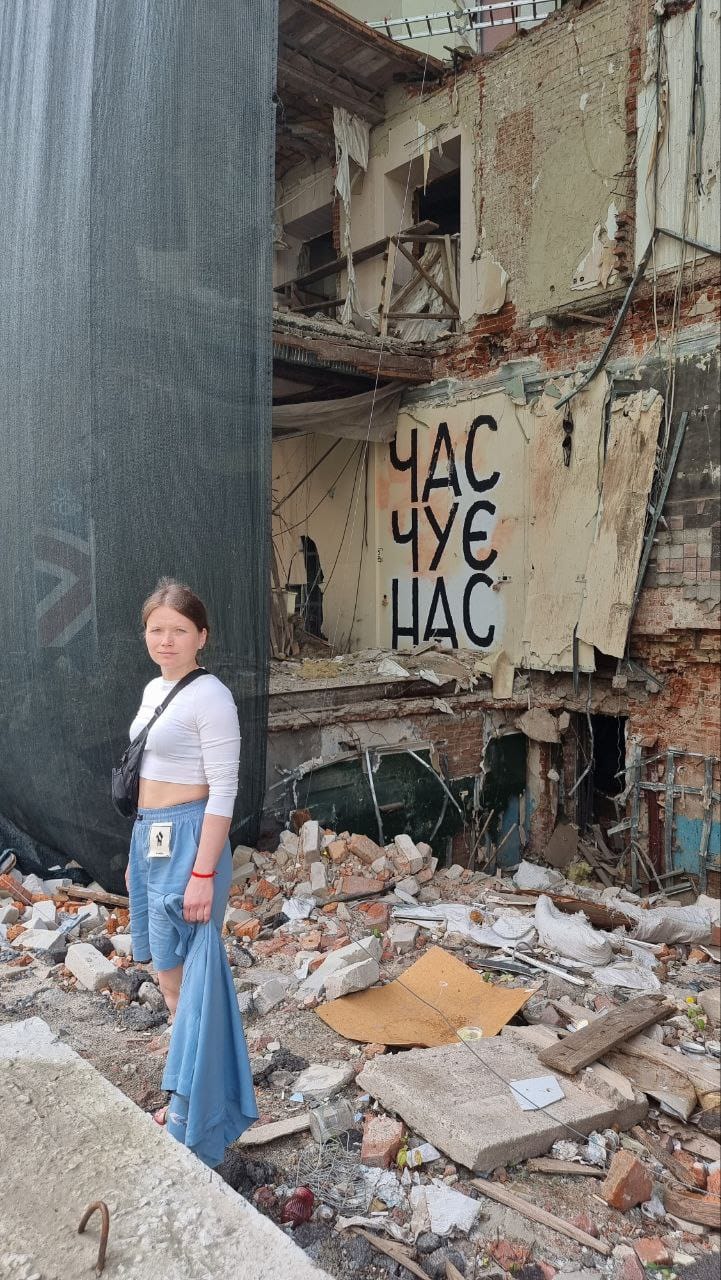We are told that we are now in a ‘pre war’ period, while senior voices in the military and in politics are talking of the case for re-equipping our armed forces and even of conscripting young people through national service for war that may come.
The Defence Select Committee added to this debate yesterday with a report Ready for War?, warning that the armed forces are losing personnel faster than they can recruit.
With the reality of conflicts around the world, this is a conversation we should be having but on one condition – that we focus on how to prevent war and not just to participate in it. Charity here is part of the picture: how do we volunteer for peace?
A number of bodies track the level of conflict around the world and after wars in places like Syria, Myanmar and South Sudan, the toll of conflict has shot up in 2022 and 2023, with conflict in Ukraine and in the Middle East, including the ongoing Israeli military action in Gaza.

In war, the power tends to concentrate, focusing in on those in power. War can be defined as state-sponsored violence, even if it is to tackle the ‘non-state actors’ of terrorism that has become the most commonly cited justification now for states at war.
So what can volunteers do?
Volunteers have a role in war. In Kharkiv, eastern Ukraine, artists such as Hamlet, paint street art, on walls or on plywood over blown out shop windows. The slogan below, in a picture sent to me says “Time hears us.” The value is to send a signal of resistance, to sustain residents’ morale at a time of tragedy and injustice.

With these volunteers are typically voluntary organisations, charities that step into desperate situations. The Mines Advisory Group (MAG) is one example, using its own scarce charity reserves, to start work in Ukraine at the earliest opportunity.
MAG has deployed teams to multiple regions in Ukraine, with operations currently focused in the areas around Chernihiv, Kyiv, and Kharkiv.
Similarly, Doctors Without Borders (MSF) works in Ukraine as it has done in other conflicts, to reach those caught in the crossfire, delivering life-saving supplies, setting up medical facilities, and providing critical support to refugees and internally displaced persons.
These charities are responding to conflict, as do others such as the World Food Programme, providing food, shelter, and assistance to those displaced and suffering. Others work to foster peacebuilding, addressing the root causes of violence and promoting dialogue and understanding.
For those who knew her, it was one more heart-wrenching development out of Black Saturday on October 7 in Israel to learn of the murder of Vivian Silver, from Kibbutz Beeri, a great peace activist and co-founder of the Women Wage Peace movement in Israel. Vivian dedicated her life to social action, to the advancement of women, and to pursuing peace. Working through non-profit co-operatives such as Negev Institute for Strategies of Peace and Economic Development (AJEEC-NISPED), she was tireless in promoting partnership and dialogue. Her passing was an act of violence, but her life was a life of peace.
We are in need of many more such lives.
Volunteering tends to bring people together from very different worlds
Becoming a volunteer is a natural act of peacebuilding in whatever form it takes. In our own work at Pilotlight, we connect skilled volunteers from the heart of business with charities working in utterly different contexts and typically with radically different lived experiences. There is a magic at work when each learns from the other. We call it skills sharing. It is a form of mutuality that takes flower in the common humanity and vulnerability of each.
Volunteers and the voluntary organisations that coordinate them help to build peace beyond relationships too, in multiple different ways. Charities might engage in conflict resolution training, promote human rights education, empower women and marginalized groups, or address environmental issues that can exacerbate tensions. By focusing on the underlying causes of conflict, like poverty, inequality or discrimination, they aim to prevent violence from taking root in the first place.
One charity we have supported in the past through our network of skilled volunteers is St Ethelburga’s. The charity’s work sits at the intersection of climate and peace, arguing that “there can be no peace on Earth unless we also realise peace with Earth.”
The International Rescue Committee has extensive experience working on the ground across various conflict zones. In South Sudan, they work with communities to resolve local conflicts through dialogue, reducing the risk of escalation. Work like this faces formidable obstacles, with risks to staff and volunteers and organisational neutrality in question as the United Nations Relief and Works Agency for Palestine Refugees, playing such a vital role, has found in the last fortnight.
Despite these challenges, the stories of resilience and hope emerging from war zones often bear the fingerprints of dedicated charities and volunteers.
And when war is over, volunteers and voluntary organisations can be key to programmes of reconstruction. This takes time and patience, to keep working when the cameras are off and the news has moved on. We have been working to support the wonderful Scottish charity Classrooms for Malawi. We help by bringing in a team of skilled volunteers (we call them Pilotlighters) to help the charity with strategy and fundraising. Coming out of the civil war in the late 1990s, around 1.4 million children have no school facilities in Malawi, learning instead out of doors. Around 1,000 UK volunteers have been out since, through the work of the charity, in order to help support the country’s next generation.
So how can we all volunteer for peace?
-
Donate: Even small contributions can make a significant difference in the lives of those affected by conflict
-
Volunteer with your skills: Many charities need professional skills and expertise to succeed and your input can have a real multiplier effect in helping what they do
-
Speak up: hold governments accountable and campaign for policies that promote peace and address the root causes of conflict.
Any politician should think long and hard before making it mandatory for young people to have to serve in the armed forces. Ironically perhaps, one of the ideas to promote volunteering in the past has been a national service for young citizens, to encourage civic action. The Youth Environmental Service is piloting this for example, for nature-based work.
The volunteering campaign the Big Help Out returns this year with a call to action over Friday 7 June to Sunday 9 June, itself part of a wider Volunteering Week.
These are welcome. With volunteering rates in decline over time I have suggested that we need a persistent, long-term social marketing effort to encourage voluntary action in the UK.
If we are facing into an age of war, we should spend no less time and effort to search for pathways to peace.
Volunteering for peace has the potential to be a defining act of humanity and of charity for our troubled times.
